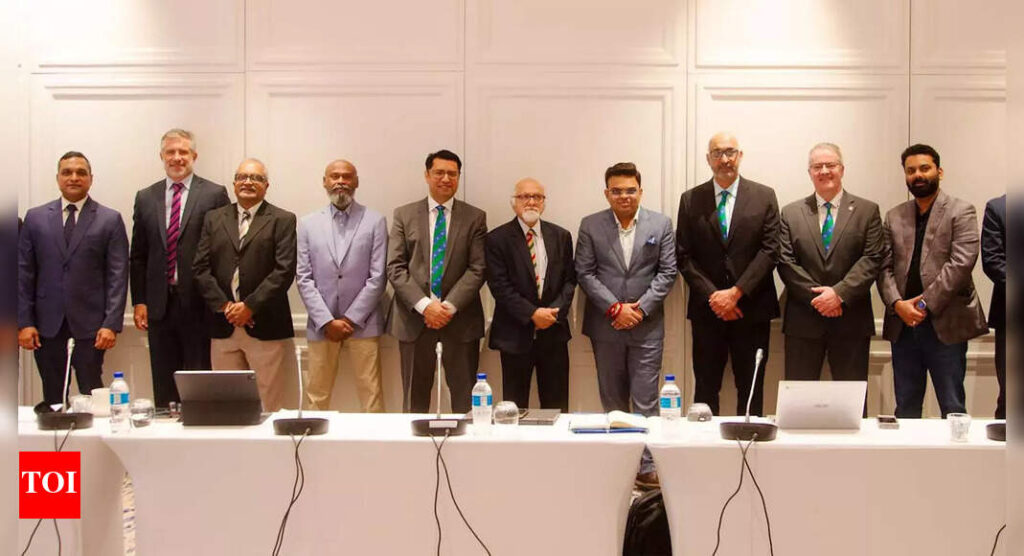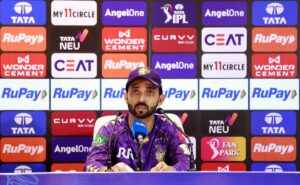
IPL vs WCA Controversy: ICC Members Issue Ultimatum to Players - 'Choose IPL or WCA'
IPL vs WCA Controversy: ICC Members Issue Ultimatum to Players – ‘Choose IPL or WCA’
Table of Contents
The IPL vs WCA controversy has reached a boiling point as ICC members, spearheaded by the Board of Control for Cricket in India (BCCI), have delivered an unambiguous ultimatum to cricket players worldwide: choose between participating in the lucrative Indian Premier League or aligning with the World Cricketers Association. This dramatic development emerged during the recent four-day ICC meeting in Zimbabwe, where the Chief Executives Committee (CEC) made their position unmistakably clear regarding the WCA’s 31-page report that questioned the current cricket revenue distribution model.
The Ultimatum: IPL vs WCA Controversy Explodes
BCCI’s Firm Stance
During the recent ICC Chief Executives Committee meeting, the BCCI took an uncompromising position that received unanimous support from other cricket boards. The message was clear and direct: players must choose between playing in the IPL or supporting the World Cricketers Association’s initiatives. This ultimatum represents a significant escalation in the IPL vs WCA controversy that has been brewing behind the scenes.
“The BCCI took a strong stand in the CEC meet and it was unanimously backed by the other members of the CEC,” revealed a source familiar with the discussions. “The message is clear – the players can either choose to play the IPL or side with the WCA. There seems to be no ambiguity.”
This hardline approach reflects growing tension between cricket’s governing bodies and the player association that claims to represent cricketers’ interests globally. By placing players in a position where they must choose between potentially lucrative IPL contracts and supporting their representative body, the ICC members have effectively escalated what was previously a behind-the-scenes dispute into a public confrontation.
Questioning WCA’s Legitimacy and Representation
At the heart of the IPL vs WCA controversy lies a fundamental question about who truly represents cricketers on the global stage. ICC members have openly challenged the very legitimacy of the World Cricketers Association, questioning its authority to speak on behalf of players worldwide.
Challenging WCA’s Authority
A CEC member who participated in the discussions bluntly questioned: “Who are they? What is the World Cricketers Association? Where have they come from? To me they are nothing but a trade union making needless noise. Clearly they don’t have the (players’) best interests in mind and just want to create distractions.”
This dismissive stance suggests that cricket’s governing bodies view the WCA as an external agitator rather than a legitimate stakeholder in the sport’s ecosystem. The Federation of International Cricketers’ Associations (FICA) changed its name to the World Cricketers Association in June last year, but this rebranding has evidently done little to enhance its standing with the BCCI – world cricket’s most influential and wealthy board.
The ICC has previously engaged with FICA in discussions, but the prospects of productive dialogue with the WCA appear increasingly remote in the current climate. “The ICC is still trying to understand the fine prints of the organisation and some of the recommendations are absurd to say the least,” a veteran administrator explained, highlighting the deep skepticism with which cricket’s governing bodies view the player association.
The Revenue Sharing Dispute: BCCI’s 38.5% Share
A central element of the IPL vs WCA controversy revolves around cricket’s global revenue distribution model. In its comprehensive report, the WCA highlighted what it perceives as inequities in how cricket’s financial resources are allocated, particularly focusing on the fact that more than 50% of global cricket revenue goes to just three countries, with the BCCI receiving a dominant 38.5% share.
Revenue Distribution Rationale
Cricket administrators defend the current model as reflecting market realities. “When the existing model was agreed upon, it was duly noted that the BCCI, the Indian market in particular, is bringing in the most money to the table. So where is rocket science? It’s pure math – you bring more, you take more,” explained one administrator familiar with the financial framework.
The WCA’s report, based on interviews with 64 individuals from across the cricket world, challenges this approach. However, ICC members appear unmoved by these criticisms, with one CEC member asserting that changes to the revenue model weren’t even seriously discussed: “Why will the ICC discuss changing the revenue model when it was agreed upon by the members when the Finance and Commercial Affairs Committee had made its recommendations. You fix something when it’s broken, and how is this broken?”
This fundamental disagreement about whether cricket’s current financial distribution system requires reform lies at the center of the growing IPL vs WCA controversy. While the WCA advocates for more equitable resource sharing, cricket’s governing bodies, led by the BCCI, maintain that the status quo appropriately rewards those who generate the greatest financial value.
ICC’s Position: Cricket Boards Over Player Associations
The ICC members have articulated a clear hierarchy in cricket’s governance structure that leaves little room for external player associations. Their position is that cricket’s representative structure flows from players to their national boards, and from those boards to the ICC – with no formal role for entities like the WCA.
“As far as the share from the gaming rights revenue is concerned, it’s nobody’s business. A player represents their cricket board and members of those cricket boards form the ICC. Where and how does WCA come into picture?” questioned a source close to the discussions, articulating the prevailing view among cricket’s governing bodies.
The Governance Structure
The ICC’s position effectively establishes that cricket’s governance follows a clear pathway: players are represented by their national boards, which collectively form the ICC. In this framework, there is no recognized position for a separate player association operating outside this structure, particularly one that challenges fundamental aspects of how the sport is administered.
This stance renders unclear what, if any, formal role the WCA can play in cricket’s global governance. By positioning player associations as external to cricket’s recognized representative structures, the ICC and its member boards have effectively marginalized the WCA’s ability to influence policy or advocate for changes to how the sport is managed and its resources distributed.
Future Implications of the IPL vs WCA Controversy
The current IPL vs WCA controversy has potential long-term implications for cricket’s governance, player advocacy, and the sport’s future development. By forcing players to choose between IPL participation and supporting the WCA, cricket’s governing bodies have created a situation where economic incentives may effectively neutralize organized player advocacy.
For players, particularly those from outside cricket’s wealthiest nations, the choice presented is hardly a choice at all. The IPL represents not just prestige but potentially life-changing financial opportunities, with contracts often worth multiples of what players can earn representing their countries. Faced with potentially losing access to the IPL, many players may feel compelled to distance themselves from the WCA regardless of their views on cricket’s governance.
This dynamics threatens to fragment player solidarity and weaken collective advocacy for issues affecting cricketers globally. Without a unified player voice, cricket’s power structures may become even more entrenched, potentially limiting progress on issues ranging from player welfare and workload management to more equitable resource distribution and development of the game in emerging markets.
What’s Next for Players Caught in the Crossfire?
As the IPL vs WCA controversy continues to unfold, players find themselves in an increasingly precarious position. The ultimatum from ICC members presents not just a professional dilemma but potentially a values conflict for many cricketers who may support the principles of collective player advocacy while also needing to secure their financial futures through IPL participation.
Players’ Difficult Choice
Cricketers now face pressure to publicly align with either their national boards and the IPL ecosystem or with the WCA’s vision of more equitable cricket governance. This forced choice may create tensions within dressing rooms and potentially divide the global cricket community along lines of financial privilege and security.
For the WCA, the path forward appears increasingly challenging. Without formal recognition from cricket’s governing bodies and with players potentially distancing themselves due to fear of IPL exclusion, the association’s ability to effectively advocate for change may be severely limited. Their options may include seeking public support from high-profile retired players, appealing to governments or courts in cricket-playing nations, or attempting to work through other international sporting bodies.
The ICC and its member boards, particularly the BCCI, appear firmly entrenched in their position. The unanimity reported among CEC members suggests little internal dissent regarding the approach to the WCA, and with the IPL’s financial leverage serving as a powerful tool to ensure player compliance, cricket’s current power structures seem unlikely to face immediate challenges.
As this IPL vs WCA controversy continues to develop, the cricket world watches closely to see whether players will risk lucrative opportunities to support collective advocacy, or whether economic realities will effectively neutralize organized player resistance to cricket’s current governance and financial models.






